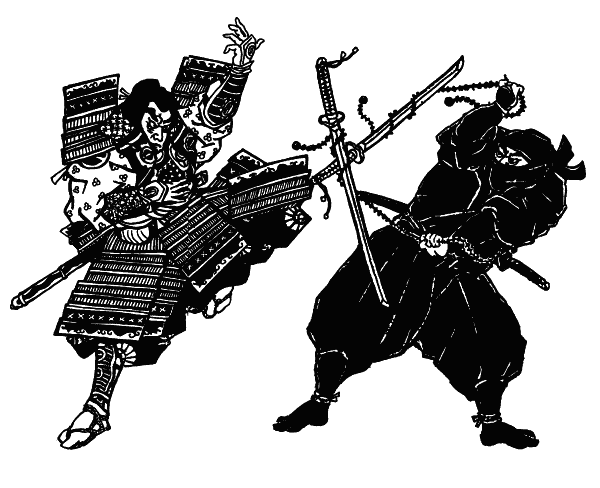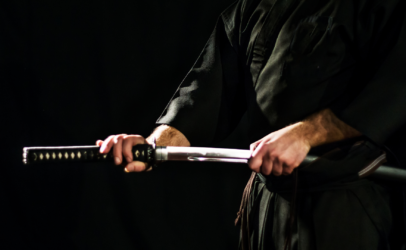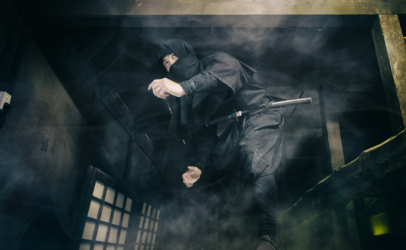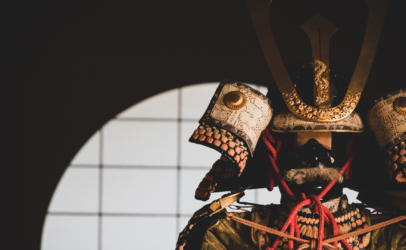A Seijin Dojo, mint minden harcművészeti iskola, nem csupán a technikai tudás fejlesztésére helyezi a hangsúlyt, hanem a tanulók személyiségére, viselkedésére és tisztelettudó hozzáállására is. Az etikett és az alapvető szabályok megértése és betartása nem csak üres, értelmetlen követelmény. Hosszútávon nagyban hozzájárul a tanuló fejlődéséhez is. Az alábbiakban bemutatjuk a legfontosabb viselkedési szabályokat és elvárásokat, amelyek segítenek abban, hogy te is méltó tagja legyél a dojo közösségének.
A Dojo Tisztelete
A dojo a harcművészetek gyakorlásának helye, ami nemcsak a fizikai, hanem a mentális és lelki fejlődés színtere is. Amikor belépsz, mindig tiszteletteljes hozzáállást kell tanusítani. Mielőtt a tatamira lépnél, állj meg a küszöbön, és várd meg, hogy az oktató jelezze, mikor léphetsz be. Ezt követően egy udvarias köszönés, azaz a “Rei” (meghajlás) végzése az oktató és a kamidana felé segít kifejezni a dojo és annak szellemisége iránti tiszteletedet.
- Csendes belépés: A dojo tisztelete azt is jelenti, hogy nem hozol be zűrzavart. Belépés előtt és után mindig állj meg egy pillanatra, és engedd el a napi gondokat. Nem csak a saját magad fejlődését akadályozod, hanem a társaidét is, ha edzés közben máshol vagy fejben. A tanárok és társak munkáját zavarni nem szabad, így próbáld minimalizálni a zajt, a beszédet és a felesleges mozgást.
- Képzeld el, hogy egy “szent” helyre lépsz: A dojo tisztelete nemcsak a megérkezéskor fontos, hanem az edzés egész ideje alatt. Figyelj arra, hogy minden mozdulatodat tudatosan végezd, és tartsd tiszteletben a hely célját és szellemiségét.
- Elkötelezettség: A Seijin Dojo elvárja, hogy a tanulók elkötelezetten és rendszeresen vegyenek részt az edzéseken, és otthon is gyakorolják a tréningeken tanultakat – folyamatosan törekedve a fejlődésre.

A Tanárok Tisztelete
A tanár (sensei) nem csak a dojo, hanem a fejlődésed vezetője is. Az iránta tanusított tiszteleted adja meg az alapot ahhoz, hogy tudjon oktatni téged. Ezen túlmenően a tanár tudásának és tapasztalatának elismerése segít megteremteni a kölcsönös bizalmat.
- Vélemények és kritikák elfogadása: A sensei visszajelzéseit fogadd el, még akkor is, ha ott és abban a pillanatban nem értesz velük egyet! Az építő jellegű kritikák célja, hogy segítsenek neked az utadon, nem szabad őket sértésként értékelni. Ne hagyd, hogy az ego-d aláaknázza a tanulási folyamatot.
- Teljes figyelem: Figyelj arra, amit a tanár mond vagy mutat és tartsd is be. Ha jobban belegondolsz, ezzel valójában nem is a sensei, hanem önmagad felé vagy alázattal. Ha egy technika vagy mozdulatsor másolása közben hanyag vagy, esetleg felülbírálod az oktatót, akkor végső soron önmagad és a technikád sikerességét akadályozod. Hidd el, még az olyan apróságoknak is lesz jelentősége, hogy merre áll a lábfejed. Ha kérdésed van, kézfeltartással jelezheted, de ne zökkentsd ki az edzőtársaid koncentrációját se beszélgetéssel.
- Köszönet: Ha a tanár befejezi az edzést, egy udvarias meghajlással ér véget a tréning. Te a tanítást, ő pedig a figyelmed és bizalmad köszöni meg. A Seijin Dojo-ban nem edzők oktatnak téged, hanem tanárok, akik a tréningek előtt időt áldoznak arra, hogy az edzésmenetet úgy építsék fel, hogy az a legkönnyebben befogadható és elsajátítható legyen számodra. Az “Arigatou gozaimashita” (köszönöm szépen) kifejezés használata segít megerősíteni a kölcsönös tiszteletet és bizalmat.
A Társak Tisztelete
A harcművészetek tanulása nem egyéni tevékenység, hanem közösségi élmény is. A dojo közösségében elvárás, hogy mindenki eflogadással és tisztelettel bánjon a másikkal. Csak így lehet a légkör támogató és produktív.
- Udvariasság és segítségnyújtás: Mivel mindenki más szinten van, ezért a haladóknak segíteni kell a kezdőket. Azonban kerüld a túlzott irányítást. Mindenkinek meg kell tapasztalnia azokat a lépcsőfokokat, amiket te már megmásztál.
- Kölcsönös tisztelet: Az edzés során sok párcsere van, hogy minél több tapasztalatot szerezhess (pl: kezdetben más egy technikát végrehajtani egy magas és egy alacsony emberen). Párba állás előtt egy gyors, udvarias meghajlással fejezzük ki a kölcsönös tiszteletet, ami akkor is követelmény, ha a partner fiatalabb vagy tapasztalatlanabb. A dojo szellemisége az együttműködésre épít.
- A küzdelem etikettje: Ha technikákat gyakorolsz ne kockáztasd a sérülést és mindig próbálj biztonságosan és kontrolláltan dolgozni. Azonban fonots megjegyezni, hogy a sérülés és a fájdalom nem ugyanaz. A fájdalom a harcművészeti edzések természetes velejárója.
- Fókuszáltság: Maradj összeszedett és koncentrált az edzés során, ne vesztegesd se a saját, se a párod edzésidejét.
A Fegyelem és az Önfegyelem
A harcművészetek alapja a fegyelem és az önfegyelem, ami megmutatkozik az edzésmunkán túl is.
- Érkezz időben: Az időpontok betartása fontos a dojo tiszteletben tartásához. Tréning előtt érkezz meg időben, hogy legyen időd átöltözni és néhány szót váltani a társaiddal. Edzésidőben ennek nincs helye. Ha nem tudsz eljönni, tájékoztasd előre a tanárodat.
- Érkezz felkészülten: Ahhoz, hogy haladni tudj, nem elég a heti 1-2 edzés. A Seijin Dojo-ban megkapsz minden szükséges információt és segítséget ahhoz, hogy otthon aztán el tudd végezni a házi feladatot. Amit tréningen tanulsz, azt otthon, magadnak kell begyakorolni. Ha ezt nem teszed és edzéseken újra és újra ugyanazokat kell megmutatni és elmondani, a csoport fejlődését fogod hátráltatni.
A Dojo-hoz való Viszony

A dojo, mint a harcművészeti tanulás helyszíne, különleges tér. A dojo tiszteletben tartása nemcsak a fizikai területre vonatkozik, hanem a hozzáállásra is.
- A harcművészeti edzések nem akkor érnek véget, amikor az óra befejeződött. Mielőtt rohannál az öltözőbe, még van feladatod:
- Az eszközök (pl. botok, kardok, kések, ütőpárnák stb.) tisztán és rendbentartása elvárás, mivel ezek a tanulás eszközei. Mindig ügyelj arra, hogy használat után a helyére tedd őket vissza és gondoskodj a fertőtlenítésükről is. Ez bármelyik gym-ben is elvárás, nálunk is az.
- Rendetlenségben oldódik a fegyelem. A dojo tisztántartása is hozzátartozik az etiketthez. Nem kell nagytakarításd végezned, hiszen ezt a feladatot a dojo megoldja. Azonban, ha végeztél az edzéssel, söpörd fel a tatamit, szedd össze a szemeted, ne hagyd szanaszét a dolgaidat. A dojo egy különleges tér és különleges bánásmódot követel meg tőled.
- A dojo nem csak az edzőteremből áll, hozzá tartozik az öltöző, a konyha és a közösségi tér, sőt az edzőtársak is. A te felelősséged is, hogy ezek is rendben legyenek. Ahogy hozzászoksz, hogy rendben tartod és tisztelettel kezeled a dojot, megérted, hogy az edzésmunkádban és az életedben is erre a rendre van szükséged.
Záró Gondolatok
A dojo etikettje nem csupán a szabályok betartásáról szól, hanem arról is, hogy a harcművészetekhez való hozzáállásunk tükröződik benne. A tiszteletteljes viselkedés, a tanárok és társak iránti megbecsülés, valamint az önfegyelem és a fegyelem mind hozzájárulnak a sikeres tanuláshoz. Ha ezeket az alapvető szabályokat betartod, nemcsak a dojo szellemiségét tiszteled, hanem önmagad és a saját fejlődésedet is.
Csatlakozz hozzánk egy próbaedzésre, és kezdd el a saját utadat az önvédelem és a ninjutsu izgalmas világában!





